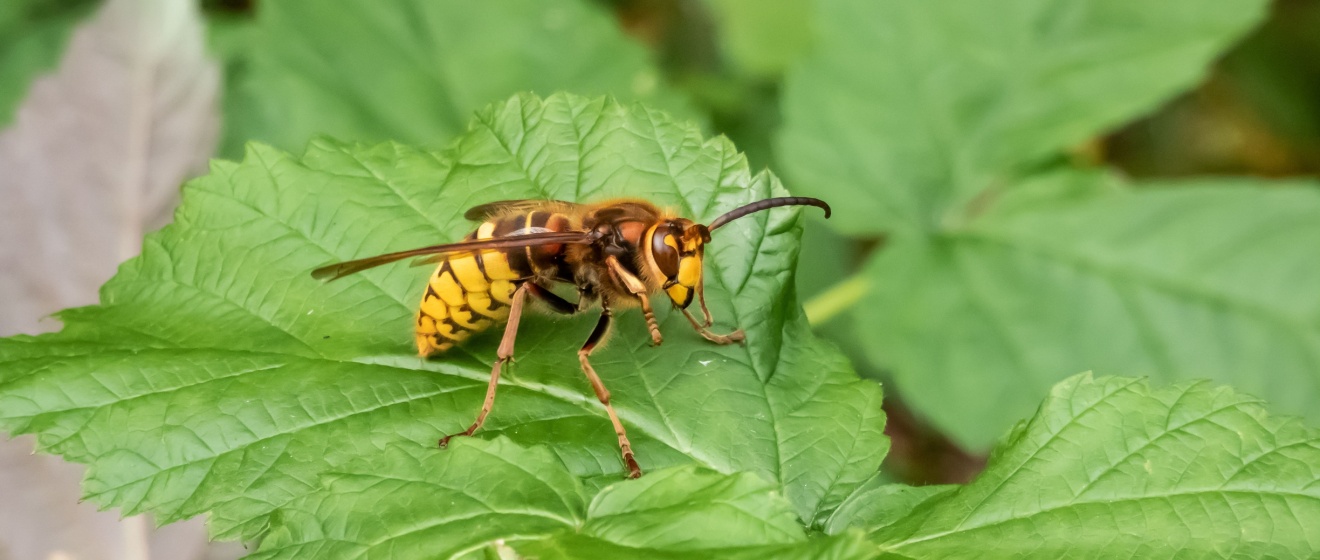As the weather warms up in Cincinnati, OH, stinging insects like wasps and hornets become a common concern for homeowners. These aggressive pests can pose a serious risk to your family, pets, and even your property. If left unchecked, they can build large nests near your home, increasing the chances of painful stings and potential allergic reactions.
At Delhi Pest Control, we understand the importance of keeping your home safe from stinging insects. In this guide, we’ll explore how to identify, prevent, and remove wasps and hornets to ensure a pest-free environment for your family.
Why Are Wasps and Hornets a Threat?
Unlike bees, wasps and hornets can sting multiple times without losing their stinger. This makes them especially dangerous if they feel threatened. Here are some key risks associated with these pests:
- Painful Stings: Their venom causes immediate pain, swelling, and redness, which can last for hours or even days.
- Allergic Reactions: Some people experience severe allergic reactions that require emergency medical attention.
- Aggressive Behavior: Wasps and hornets become highly aggressive when their nest is disturbed, attacking in swarms if they feel threatened.
- Property Damage: Some species, like carpenter wasps, can damage wooden structures by burrowing into them.
If you notice increased stinging insect activity around your home, it’s essential to take action before the problem escalates. Contact Delhi Pest Control for expert assistance.
How to Identify Wasps and Hornets Around Your Home
Before attempting to remove stinging insects, it’s crucial to identify what you’re dealing with. Here are some common wasps and hornets found in Cincinnati, OH:
Paper Wasps
- Slender bodies with long legs
- Brown with yellow or reddish markings
- Build open, umbrella-shaped nests under eaves, decks, or attics
- Moderately aggressive, especially when their nest is disturbed
Yellow Jackets
- Black and yellow striped bodies
- More compact than paper wasps
- Often nest underground, in wall voids, or in hidden spaces
- Extremely aggressive, especially in late summer and early fall
Bald-Faced Hornets
- Black bodies with white markings
- Larger than most wasps, growing up to ¾ inch in length
- Build large, enclosed paper nests in trees or on buildings
- Very aggressive and will attack in swarms if their nest is disturbed
European Hornets
- Brown with yellow-orange markings
- Larger than bald-faced hornets, reaching up to 1.5 inches in length
- Prefer to nest in hollow trees, barns, or wall voids
- Can be aggressive but typically sting only when provoked
If you spot an active nest near your home, do not attempt to remove it yourself. Instead, call Delhi Pest Control for safe and effective removal.
How to Prevent Wasps and Hornets from Nesting
While it’s impossible to eliminate all stinging insects, there are steps you can take to make your home less inviting:
1. Seal Entry Points
Inspect your home for cracks, holes, and gaps where insects might enter. Seal these openings with caulk or weatherstripping to prevent nesting inside walls or attics.
2. Remove Food Sources
Wasps and hornets are attracted to sweet foods and proteins. Keep garbage cans tightly sealed, clean up food spills, and avoid leaving pet food outside.
3. Trim Vegetation
Overgrown trees, shrubs, and bushes provide ideal nesting sites. Keep your yard well-maintained to reduce hiding spots for stinging insects.
4. Use Wasp Repellents
Essential oils like peppermint, clove, and lemongrass are natural deterrents. Spraying these oils around your home can help keep wasps and hornets away.
5. Install Wasp Traps
Commercial wasp traps can help reduce the population around your home. However, these should be placed away from high-traffic areas to avoid attracting insects closer to your living spaces.
If you’ve already noticed an increase in wasp or hornet activity, professional stinging insect control is the best solution.
Safe Removal of Wasps and Hornets
Attempting to remove a nest on your own can be dangerous, especially if the colony is large or located in a hard-to-reach area. Here’s why professional pest control is the safest option:
- Expert Identification: Professionals can determine the species and the best removal method.
- Protective Equipment: Pest control experts wear specialized gear to prevent stings during removal.
- Effective Treatment: Using the right insecticides and techniques ensures complete nest elimination.
- Prevention Strategies: After removal, professionals can recommend long-term prevention methods to keep stinging insects from returning.
At Delhi Pest Control, we offer fast and reliable removal services to protect your home and family.
What to Do If You Find a Nest
If you discover a wasp or hornet nest on your property, follow these safety guidelines:
- Keep Your Distance: Do not approach the nest or make loud noises that could agitate the insects.
- Avoid Spraying Insecticide: Many over-the-counter sprays only kill surface-level insects and can make the colony more aggressive.
- Call a Professional: The safest and most effective way to handle the problem is to contact Delhi Pest Control for expert removal.
Protect Your Home with Delhi Pest Control
Don’t let wasps and hornets take over your home. With the right prevention strategies and professional pest control services, you can enjoy a safe and pest-free outdoor space.
For expert stinging insect removal in Cincinnati, OH, contact Delhi Pest Control today. Our team is ready to help you reclaim your home from these aggressive pests!

